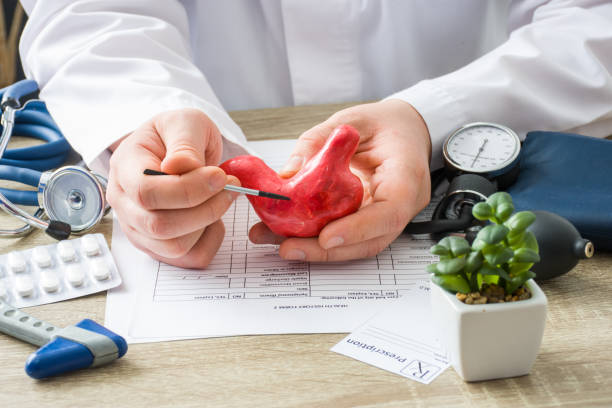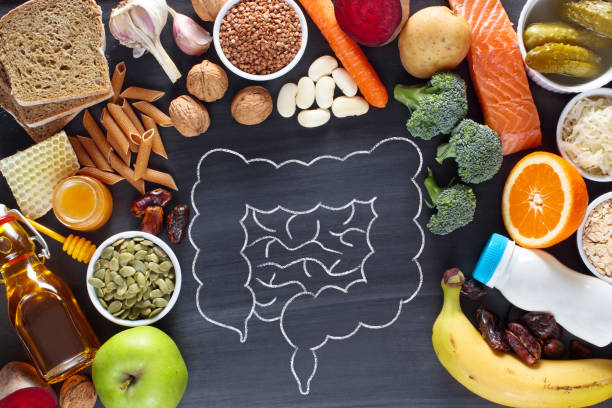11/05/2022
What is Gastro And How Can We Manage It?
Table of Contents
What is gastro? What are the symptoms and what causes it? Read on for everything you should know about gastro and how to treat it.
Gastro is a very common infection that most people experience intermittently throughout their lives. The infection can affect all age groups.
But, what exactly is this condition, what causes it, what are the symptoms, and is there a way for you to protect yourself?
Read on because we’ll be tackling all of the above questions and more.
Let’s dive in.
What is Gastro?
Gastro, short for gastroenteritis, refers to an irritation of the digestive tract. The simplest way to start understanding the condition is to break the name down into its building blocks:
- Gastro – refers to the stomach
- Enter – refers to the intestine
- itis – refers to inflammation
So, gastroenteritis refers to inflammation in the intestine leading to vomiting and diarrhoea ( the abnormal frequency and liquidity of fecal evacuations).
We have two primary types of gastroenteritis: acute and chronic. Acute self limiting diarrhoea is very common and mild and resolves within days. Chronic diarrhoea is defined as diarrhoea lasting more than 4-6 weeks.

What Are The Symptoms of Gastro
To understand what you can experience when dealing with gastroenteritis, we first have to look at the digestive system briefly. The main parts are:
- Esophagus
- Stomach
- Small intestine
- Large Intestine
Under normal circumstances, as you consume food, the first breakdown occurs in the mouth. From there, the food travels down your esophagus and enters the stomach, where you digest it further with the help of stomach acid. Your body absorbs the nutrients it needs, and the rest begins its long descent down your intestines. The remaining food first enters the small intestine, then goes to the large intestine, and finally comes out during a bowel movement.
But, when dealing with an infection and inflammation of the intestine, the process might not occur that way. Instead, your digestive system might be unable to digest food, absorb nutrients, and expel waste. You’re left with food in your stomach, and your body is looking for ways to get rid of the infection.
A practical solution your body comes up with is to bring the food back up where it came from. You begin to experience nausea and end up vomiting the contents in your stomach. The other way for your body to get rid of some food and water is through bowel movements in the form of diarrhoea.
So, these are the two primary symptoms of gastroenteritis: diarrhoea and nausea with vomiting.
Aside from the obvious issues, we are dealing with another one. You’re consuming food and water, which your body struggles to absorb. As a result, you can also experience:
- Dehydration
- Stomach and body cramps
- Headache
- Fever
Folks with chronic gastroenteritis can be at a higher risk of nutrient deficiencies because of their body’s recurring inability to absorb essential nutrients from food. So, while dealing with a single bout of inflammation might not necessarily be cause for alarm, chronic diarrhoea may require medical investigation.
What Causes Gastro
The most common causes of acute diarrhoea are viral. But the potential causes are numerous. With chronic diarrhoea there can be severe, even life-threatening causes that need investigation by a medical practitioner.
The most common causes of gastroenteritis are infectious pathogens, including:
- Norovirus
- Rotaviruses
Depending on the specific strain, the virus might cause a mild case that goes away within a day or two or a severe one that comes with extreme diarrhea, loss of appetite, nausea, and vomiting for up to a week.
Aside from viruses, bacteria can also promote inflammation in the intestine. Common examples include:
- Salmonella
- Shigella
- E.Coli
- Campylobacter jejuni
- Staphylococcus aureus
Acute diarrhoea that persists into a chronic condition is common, especially in travelers. Important causes are:
- Giardia lamblia
- C. Difficile
- Yersinia
- Entamoeba histolytica
- Cryptosporidium
Chronic medical conditions like Crohn’s disease, ulcerative colitis and even HIV can be serious causes of long term diarrhoea.

Is Gastro Contagious?
Yes, viral gastroenteritis is highly contagious. . The reason is that, while inflammation doesn’t get transmitted from one person to the next, the pathogens that cause it do. As such, being in contact with someone who has gastro can get you sick, too. Its very common for gastro to pass through multiple family members and close co-workers.
The usual way to pass gastroenteritis from one person to the next is through fecal-oral transmission. It means that the germs responsible for the illness are in the infected person’s stool. They then find their way to another person, resulting in infection.
For example, a person with gastro might go to the bathroom but fail to wash their hands thoroughly. Touching food, glasses, and surfaces can leave some of the germs, opening the door for someone else to get these pathogens in their system. According to data, around 32 percent of all gastroenteritis cases in Australia occur from food.
If you have gastro its important you remain isolated at home and wash your hands frequently with soap and water. Ask you doctor when it is safe for you to remove yourself from isolation.
The Symptoms of Gastro: Warning Signs to Watch Out For
As discussed earlier in the post, gastroenteritis refers to inflammation in the intestine.
The most common symptoms of gastroenteritis are self limiting nausea, vomiting, and diarrhea because the body is actively looking for ways to get rid of the infection. In many cases, folks also deal with fever and body aches because the body is fighting an infection.
Due to fluid loss from vomiting and diarrhoea, people often become severely dehydrated.
Things to watch out for are
- weight loss
- blood in the stool
- severe fever or dehydration
- severe abdominal pain
If you experience any of these severe symptoms you must seek medical attention immediately.
What to Eat When You Have Gastro
Gastroenteritis might make it impossible to eat anything in the first day or two of the illness due to nausea and vomiting. It’s best to avoid food if you’re dealing with extreme nausea. Instead, drink lots of water to reduce the risk of dehydration. Even if you are vomiting regularly – keep drinking fluid. Your body absorbs a lot more than you think.
After the initial bout of nausea, most people’s appetites begin to come back in small ways, and the best thing you can do is have multiple small servings of food. Doing so is beneficial for giving your digestive system enough time to break down the food you’re eating and, hopefully, keep it down. Overeating can overwhelm your stomach, leading to new episodes of nausea and vomiting.
Aside from eating small portions, it’s best to go for easily-digestible foods, including:
- Crackers
- Toast
- White rice
- Clear soups
Avoid sugars, fats, and dairy products for a few days as these can trigger nausea, increasing the risk of vomiting and dehydration.
Do Electrolytes Help With Gastro?
Absolutely electrolyte replacement is very important. As discussed above, gastroenteritis often leads to vomiting, which causes you to lose a lot of fluids and electrolytes (sodium, potassium, etc.). As a result, you might experience symptoms like:
- Cramps
- Weakness
- Fatigue
- Brain fog
- Dizziness
- Confusion
- Anxiety
On top of that, loss of electrolytes can further contribute to feelings of nausea, causing you to vomit even more. Severe electrolyte disbalance can lead to an abnormal heart rate and shock.
Replacing lost electrolytes and staying hydrated are the two best things you can do while dealing with gastroenteritis. Hydralyte is a fantastic option because it has a light formula that provides enough of the essential electrolytes and almost no sugar. You can pick between several forms, including powder, tablets, and liquid.
On top of replacing lost electrolytes, you should drink as much water as you can hold down in small, regular sips. Don’t overwhelm your stomach with large gulps but be consistent with your drinking to keep dehydration at bay. You are also safe to use medications such as paracetemol to help with aches, pain and fever. Make sure you are in regular contact with your local GP.
Recommended reading
Search for a specific topic or filter by categories to find information on what you need to know on the full Medmate Journal

What to Do When You’re Unwell at Home: A Practical Guide
Feeling unwell at home can be frustrating—especially when you can’t get in to see a doctor or you’re too unwell to leave the house. Whether it’s symptoms of a virus,…


